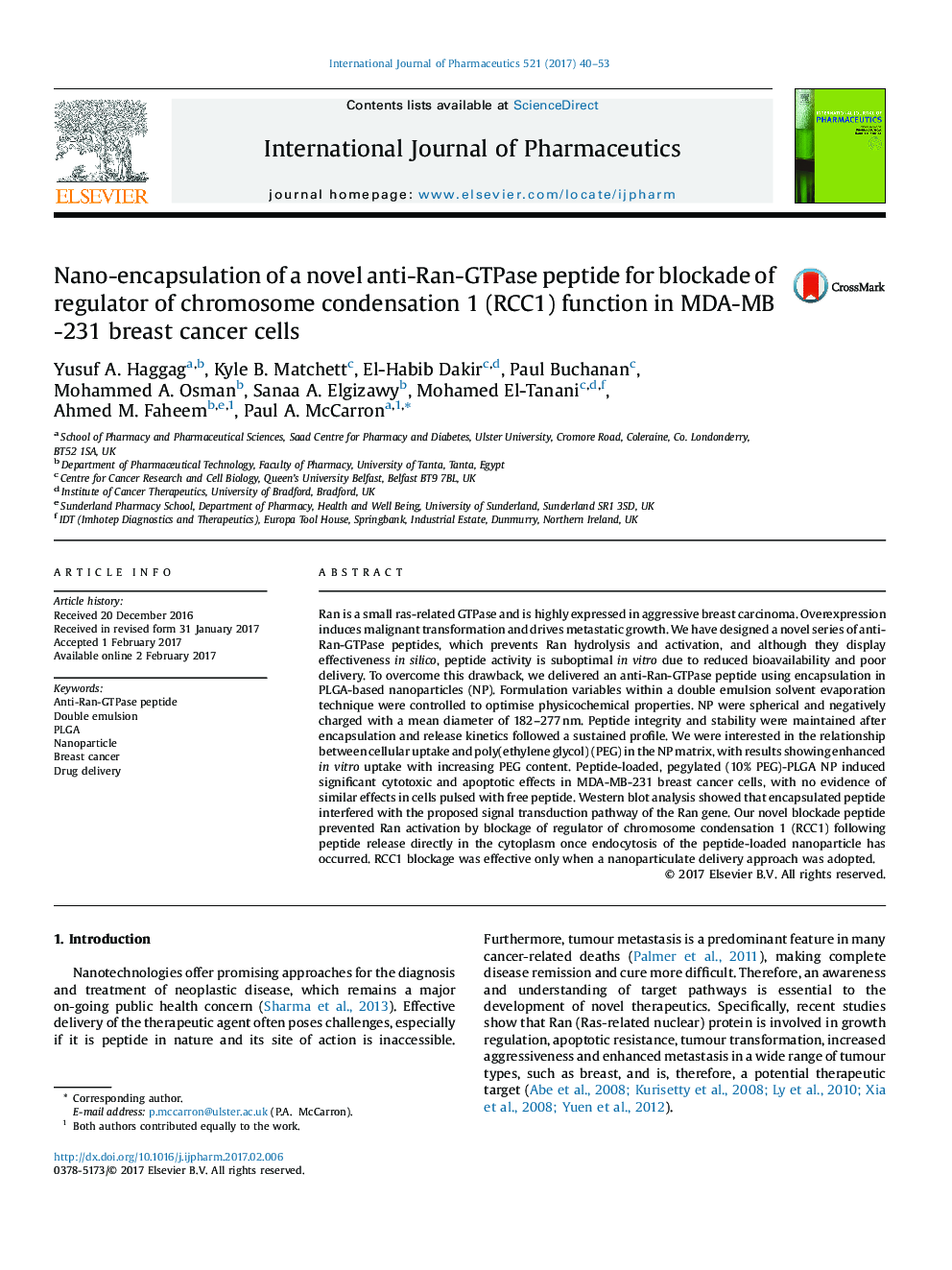| کد مقاله | کد نشریه | سال انتشار | مقاله انگلیسی | نسخه تمام متن |
|---|---|---|---|---|
| 5550609 | 1557296 | 2017 | 14 صفحه PDF | دانلود رایگان |

Ran is a small ras-related GTPase and is highly expressed in aggressive breast carcinoma. Overexpression induces malignant transformation and drives metastatic growth. We have designed a novel series of anti-Ran-GTPase peptides, which prevents Ran hydrolysis and activation, and although they display effectiveness in silico, peptide activity is suboptimal in vitro due to reduced bioavailability and poor delivery. To overcome this drawback, we delivered an anti-Ran-GTPase peptide using encapsulation in PLGA-based nanoparticles (NP). Formulation variables within a double emulsion solvent evaporation technique were controlled to optimise physicochemical properties. NP were spherical and negatively charged with a mean diameter of 182-277Â nm. Peptide integrity and stability were maintained after encapsulation and release kinetics followed a sustained profile. We were interested in the relationship between cellular uptake and poly(ethylene glycol) (PEG) in the NP matrix, with results showing enhanced in vitro uptake with increasing PEG content. Peptide-loaded, pegylated (10% PEG)-PLGA NP induced significant cytotoxic and apoptotic effects in MDA-MB-231 breast cancer cells, with no evidence of similar effects in cells pulsed with free peptide. Western blot analysis showed that encapsulated peptide interfered with the proposed signal transduction pathway of the Ran gene. Our novel blockade peptide prevented Ran activation by blockage of regulator of chromosome condensation 1 (RCC1) following peptide release directly in the cytoplasm once endocytosis of the peptide-loaded nanoparticle has occurred. RCC1 blockage was effective only when a nanoparticulate delivery approach was adopted.
116
Journal: International Journal of Pharmaceutics - Volume 521, Issues 1â2, 15 April 2017, Pages 40-53